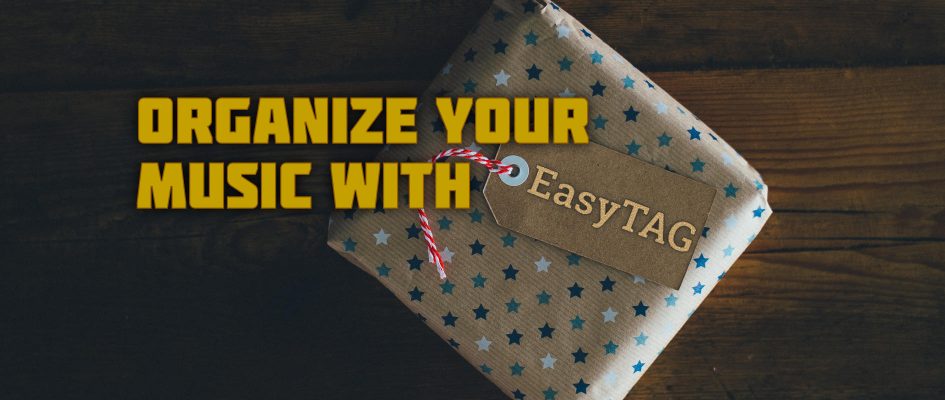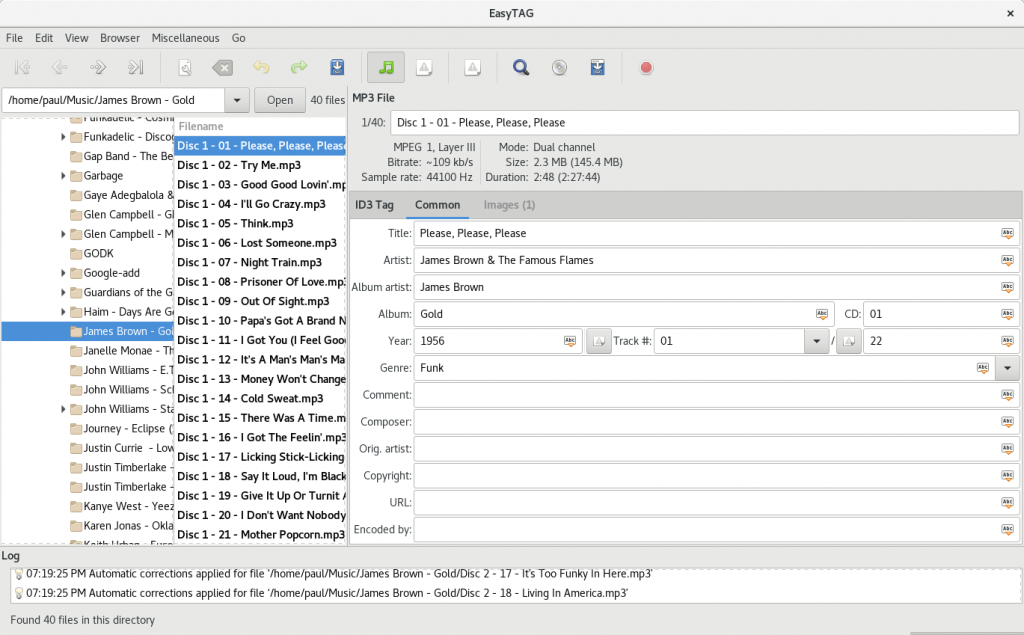Audio files in formats such as MP3, AAC, and Ogg Vorbis have made music ubiquitous and portable. With the explosive growth of storage capacity, you can store huge libraries of music. But how do you keep all that music organized? Just tag your music. Then you can access it easily locally and in the cloud. EasyTAG is a great choice for tagging music and is available in Fedora.
Many audio file types support tagging, including:
- MP4, MP3, MP2
- Ogg Speex, Ogg Vorbis, Ogg Opus
- FLAC
- MusePack
- Monkey Audio
Installing EasyTAG
EasyTAG is easy to install from Fedora repositories. On Fedora Workstation, use the Software tool to find and install it. Or in a terminal, use the sudo command along with dnf:
sudo dnf install easytag
Then launch the program from the Software tool or the application menu for your desktop. EasyTAG’s straightforward interface works well in most desktop environments.
Tagging music
Select a folder where you have music you want to tag. By default, EasyTAG will also load subfolders. You can select each file and add tag information such as the artist, title, year, and so on. You can also add images to a file in JPG or PNG format, which most players understand.
Files you have altered appear in bold in the file listing. To save each, press Ctrl+S. You can also select the entire list and use Ctrl+Shift+S to save all the files at once.
One of the most powerful features of EasyTAG is the file scanner. The scanner recognizes patterns based on a template you provide. Once you provide the right template and scan files, EasyTAG automatically tags all of them for you. Then you can save them in bulk. This saves a lot of time and frustration when dealing with large libraries.
When you upload your tagged files to a cloud service, your tags allow you to quickly find and play the music you want anytime. Happy tagging!







Tom W.
EasyTag is pretty darn good. I really like the filename to tag parsing options.
PuddleTag is more difficult to learn but once learned, a far better tagging tool (IMO). Being able to see all the tags for an album or audiobook in a spreadsheet like interface makes it much easier to spot problems or untagged elements. The “Undo” feature (even when mass tagging) has saved me many times. Defining custom functions was really painful to learn but there were some good tutorials available and turns out to be one of Puddletag’s most powerful features
Joe
How does this differ (or improves upon) the tagging facilities already provided by, say Amarok or Audacity, please?
Period22
A powerful alternative is Puddletag, which is also in the standard Fedora repositories. It has a table-like interface, which suits me well.
Bob
I don’t know Puddletag. But I replaced EasyTAG with Kid3 which has more modern look in my opinion.
Frank
I have used EasyTag for a number of years. However, I recently started using MusicBrainz which I really like a lot. MusicBrainz uses a cloud-based database to fill the tags.
fb2k & discogs
I came on this tagging question when I was still on Windows and discovered fb2k and the discogs tagger plugin.
I found that relying on an existing db was the best solution as I wouldn’t have to think of “which style is this album?” or “when does this album, reedit, deluxe edition was released?”.
Discogs tagger has since evolved and has received a lot of new features that let us tag our files with so much flexibity that I cound’t use something else.
I have to use Wine, but it is a very little disadvantage compared to what I get from the program (not to mentioned all library displaying options, converting between formats, etc.). Not OSS either, but so much powerful.
Ryan
I seem to have an issue going on between Rhythmbox and Easytag with Ogg Vorbis files in Fedora 26. Sometimes Rhythmbox can read the tags and other times it lists them as an Unknown file.
I can’t tell which one is at fault.
satanselbow
Only comments that sing EasyTags praises and ignore it’s faults then… hmmm… fake news! fake news! lol